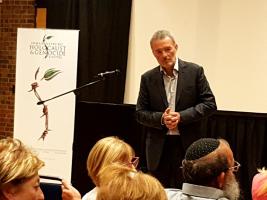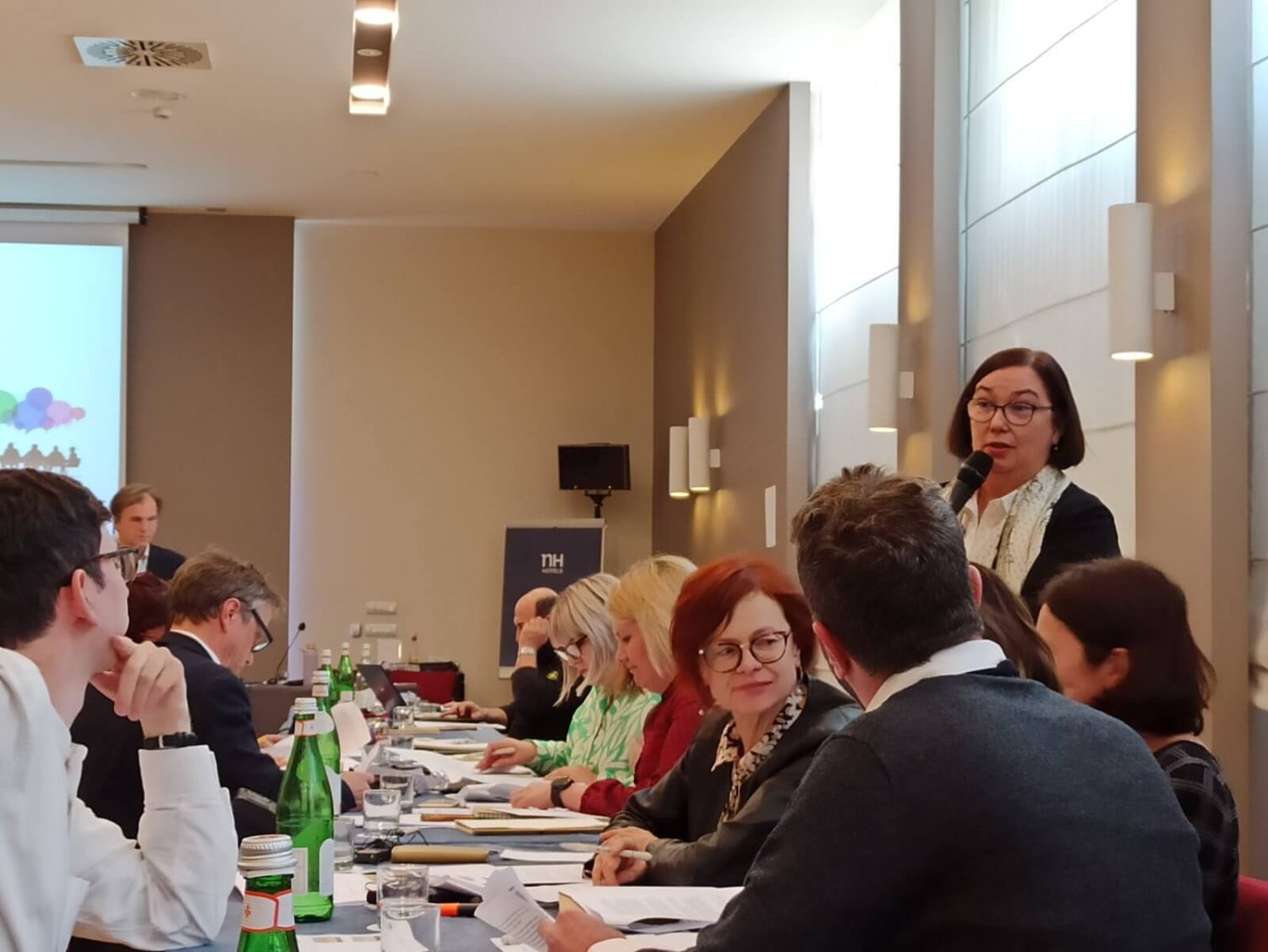
Empowering teachers to address antisemitism in the classroom
This article is part of our series looking back at one year of implementation of the pledges made at the Malmö International Forum, Remember ReAct.
“Most teachers don’t ask to deal with the topic of antisemitism. But that is their reality. They don’t have a choice,” says Werner Dreier when talking about the motivation behind developing recommendations to support teachers in dealing with antisemitism.
As the founding director of erinnern.at, an institution for teacher training and development of learning material on behalf of the Austrian Ministry of Education, Werner Dreier understands the special role that teachers have in combating antisemitism:
“Schools are a unique setting because they bring together people with different backgrounds from all parts of society. There are few other forums where this happens. Teachers are faced with a microcosm of the same problems and challenges we find in society: this includes antisemitism and distortion of the Holocaust.”
The aim of the project is to develop recommendations for teacher training colleges and universities in Austria, Bavaria, and Switzerland so that they can better support teachers in confronting Holocaust distortion and antisemitism. By developing teachers’ subject matter knowledge and giving them space to reflect and share their own values, attitudes and insights on the topic of antisemitism, the project team believes that teachers can successfully and confidently learn to confront these issues inside and outside the classroom.
Helping teacher training institutions understand their role in combating antisemitism
But it is not only teachers who have a role to play. Werner Dreier emphasizes that a key aim of the project is to raise awareness among teacher training institutions that antisemitism is a subject that should form part of professional development for teachers in the first place. He reported that some teacher trainers the project team worked with had been skeptical at first, incorrectly believing that the topic of antisemitism was already being covered under education on the Holocaust.
“It is important that teacher training institutions understand that antisemitism is a distinct phenomenon that needs to be addressed independently. Once we sat down with teacher trainers and explored the benefits of explicitly addressing antisemitism with their teachers in training, the response was very positive. It develops competences and insight, builds confidence, and encourages self-reflection,” Werner explained.
Werner also stresses the responsibility that institutions themselves have to ensure that when teachers are confronted by antisemitism in the classroom, they know who to turn to and what steps to take internally: “This is not just about sharing knowledge on antisemitism – it is also about establishing clear processes and procedures within educational institutions.” For example, one of the recommendations encourages institutions to establish a contact person, and clear procedures for dealing with antisemitic incidents.
The recommendations, which were co-funded by the IHRA grant program, were developed in cooperation between _erinnern.at_ National Socialism and the Holocaust: Memory and Present (Austria), Lucerne Institute of History Education and Memory Cultures, University Lucerne (Switzerland) and the Office of Bavarian State Government Commissioner for Jewish Life and against Antisemitism, for Work of Remembrance and Historical Heritage (Germany). Though the recommendations were developed by institutions in Austria, Germany, and Switzerland, IHRA’s Education Working Group and Committee on Antisemitism and Holocaust Denial feel that they have relevance for other countries too.
Werner Dreier emphasizes that he would like to see all degree and training programs for future teachers offer basic, extended and in-depth courses on dealing with antisemitism: “Teachers and educators should feel confident and supported in tackling antisemitism when it shows up in their classrooms. These recommendations are one step towards this”.
The recommendations were one of the pledges in support of Holocaust education made by Austria at the Malmö International Forum on Holocaust Remembrance and Combating Antisemitism in October 2021. The full research and results conducted as part of the project are available in German – a summary of the recommendations can be found in English.
Sign up to our newsletter to
receive the latest updates
By signing up to the IHRA newsletter, you agree to our Privacy Policy



